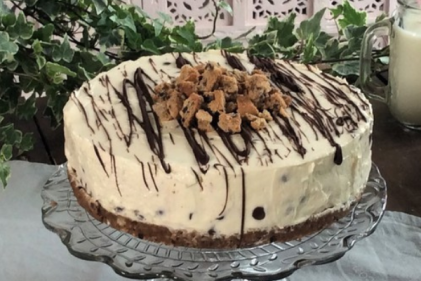Bad eating habits such as emotional eating or bingeing can be partly attributed to an individual’s parents according to a new study.
The study by psychologists in the UK and Norway found a link between negative emotional eating habits and parents' handling of negative emotions - both their own and those of their child.
The study, which was published in the journal Child Development, found two particularly interesting findings.
Researchers discovered that when parents offered children aged between four and six years old food to comfort them, the kids developed emotional eating habits by the ages of eight and ten
Parents who had a habit of emotional eating were more likely to pass this trait on to their children.
The researchers carried out an initial study with 801 four-year-olds from Norway and did follow-up studies every two years up to the ages of ten.
Lead author Silje Steinsbekk and associate professor of psychology at the Norwegian University of Science and Technology, told The Independent: “Emotional feeding triggers emotional eating and vice versa, possibly causing a vicious circle.
“We found that children who are more easily upset are more likely to emotionally overeat over time and their parents are more likely to offer them food for comfort as well.”
It’s not the first time that parental eating habits and behaviours have been linked to children’s eating habits.
A 2016 study published in the Archives of Disease in Childhood suggests that children who have anxious or depressed parents are more likely to develop fussy eating habits - before they are even born.
A separate study published in The American Journal of Clinical Nutrition showed that eating behaviour learned at home has more influence than fast food advertising when it comes to poor eating habits.
Experts advise that if a child is upset and distressed, it’s better to offer them a hug or offer to talk as reassurance, rather than placating them with junk food.
"Parents should aim to teach children how to handle their negative emotions by other strategies than eating”, Professor Steinsbekk said.
However, she was keen to reassure parents that an occasional treat won’t do any harm.
“The problem occurs if this is your typical way of handling negative emotions.
"The same applies to emotional feeding - parents are not supposed to be perfect, - randomly using food to soothe your child is no big deal as long as you usually rely on other strategies to calm him or her."














